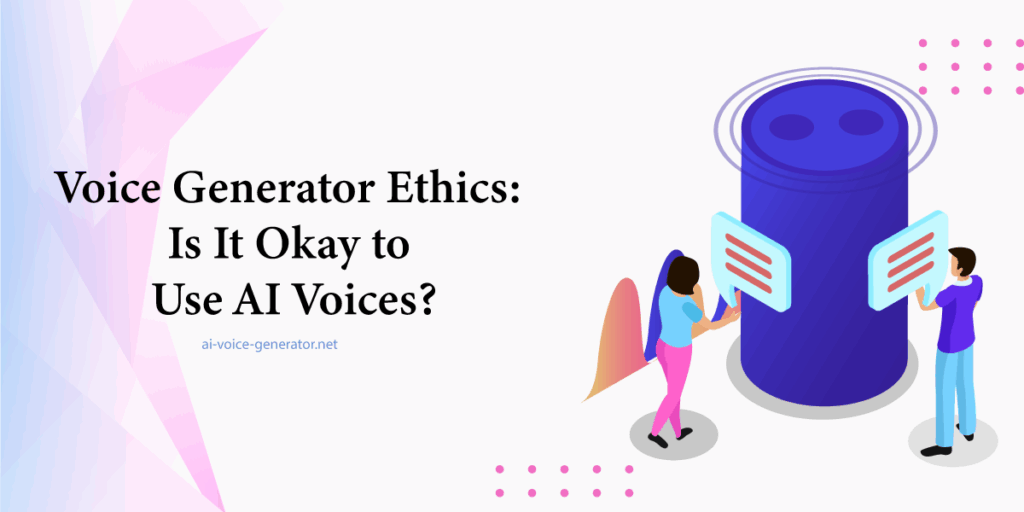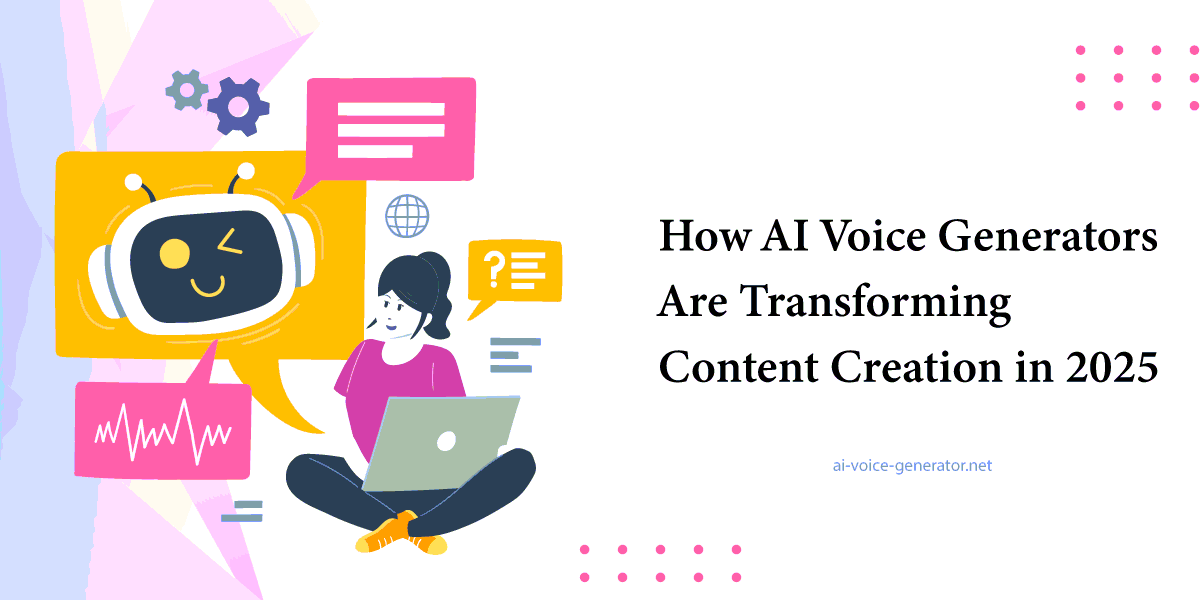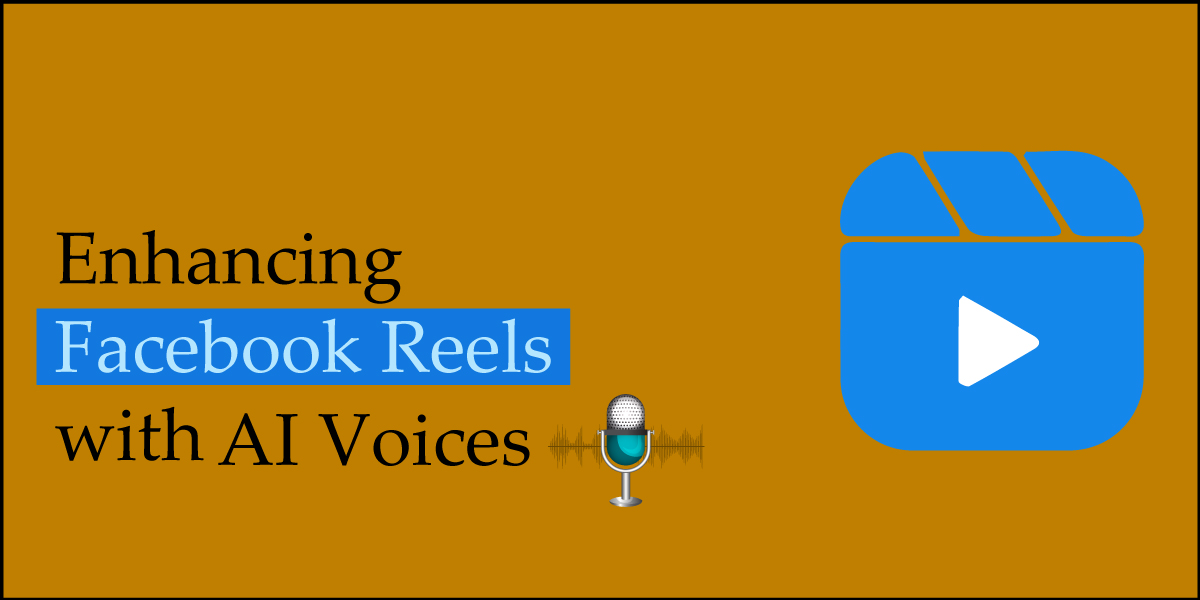
Voice Generator Ethics: Is It Okay to Use AI Voices?
The rise of AI voice generator technology has made it easier than ever to produce lifelike voices without hiring a human speaker. From YouTube content and audiobooks to e-learning modules and phone support systems, artificial voices are now everywhere. But as these tools become more advanced and widely used, a growing question emerges: Is it truly ethical to use AI voices?
This blog explores the moral and practical concerns surrounding AI-generated voices, the future of digital speech, and how we can use this technology responsibly in a world increasingly shaped by synthetic communication.
How AI Voice Generators Are Changing the Way We Communicate
The evolution of text to speech technology has had a massive impact on how content is created and consumed. Once used mainly for accessibility purposes, it’s now a central part of marketing, entertainment, and online education. What used to sound robotic and unnatural has transformed into voices that are nearly indistinguishable from human speech.
The convenience of AI voice tools is undeniable. Instead of hiring multiple voice actors for different tones and languages, creators can now generate custom voices at the click of a button. Businesses are saving time and money, and individuals are gaining more tools for creative expression. But with these benefits come complex challenges.
The Rise of Voice Cloning: Convenience or Concern?
One of the most powerful—and controversial—features of AI speech technology is voice cloning. This is the process of creating a digital replica of someone’s voice using a small audio sample. It’s incredibly useful in situations like restoring a person’s voice after surgery or maintaining brand voice consistency. But it’s also been misused.
There are growing concerns about consent and impersonation. When anyone can replicate your voice, what stops them from doing so without permission? Misuse of cloned voices has already made headlines, especially in the form of scams, fraud, and misleading content.
The legal frameworks around this are still evolving, but the ethical question remains: should we be cloning voices without strict consent and transparency policies in place?
Realism and Responsibility: Understanding the Synthetic Voice Shift
A realistic voice generator doesn’t just speak—it emulates human emotion, tone, and subtle speech nuances. This has opened doors for podcasts, audio stories, and even virtual influencers to use AI-generated speech in ways that feel natural to listeners.
But the realism itself is a double-edged sword. When a synthetic voice becomes indistinguishable from a real one, listeners may not know they’re engaging with an AI. This is particularly tricky in political ads, news segments, or any area where trust is essential. Transparency is key here, yet many content creators don’t disclose when a voice is generated rather than recorded.
As more industries adopt synthetic voices, society must grapple with new standards of honesty. Should it be mandatory to label AI voices? How will this change listener expectations?
The Entertainment World’s Embrace of AI Voices
Film, gaming, and social media have all embraced AI voice generator technology to add depth and flexibility to content. Studios can replicate a late actor’s voice, video games can generate endless dialogue options, and influencers can produce voiceovers without saying a word.
These advancements wouldn’t be possible without modern voiceover software that integrates with video editing and animation tools. It helps creators stay agile and experiment with formats that were too expensive or complex in the past.
Still, entertainment industries walk a fine line. Fans may appreciate hearing a favorite character again through AI, but critics warn against over-reliance on machines to recreate what only a human can bring—authenticity and emotional connection.
When Free Becomes Risky: The Popularity of Free Voice Generators
Online, the search for a free voice generator is skyrocketing. Users love the accessibility of AI voices without subscription fees or installation hassles. These tools are especially popular with students, indie creators, and small businesses that need fast results with minimal cost.
However, the rise of free platforms also introduces risks. Many don’t have clear privacy policies, and user-generated content may be stored or used without full consent. Some may lack quality controls or allow voice cloning without identity verification, which adds to potential abuse.
While these tools make innovation more inclusive, users must be cautious. Just because a tool is free doesn’t mean it’s safe or ethical to use in all cases.
Deepfake Audio: A Growing Threat to Trust
Perhaps the most pressing concern is deepfake audio—digitally altered recordings that manipulate voices to say things the person never actually said. These are already being used in misinformation campaigns, identity theft, and fraud schemes.
Unlike visual deepfakes, which can sometimes be spotted with trained eyes, manipulated audio can be nearly impossible to detect. All it takes is a convincing text to voice system and a bit of editing.
As deepfake technology improves, public trust in audio as evidence or communication is eroding. Courts, media outlets, and online platforms must now think about authentication standards for audio in the same way they do for documents or video.
AI Voice Tools in Accessibility and Education
On the positive side, AI voice tools continue to transform accessibility. For people with visual impairments or learning disabilities, text to speech services offer independence and enhanced access to information. In classrooms, AI voices help students absorb content in new and engaging ways, especially when multiple languages are involved.
Educational platforms also rely on AI to create multilingual lessons, real-time narration, and interactive learning modules. These advances demonstrate how ethical use of synthetic voices can support equality and innovation, rather than pose harm.
Voice Rights and Digital Identity in the Age of AI
As the use of synthetic voice expands, a new form of digital identity is emerging: our voiceprint. It’s now a valuable piece of data, just like fingerprints or facial scans. But while biometric data is tightly regulated in some regions, voiceprints are often overlooked.
Who owns a cloned voice? Is it the person whose voice was sampled, or the developer of the AI system? These questions aren’t just philosophical—they’re legal and financial.
Celebrities, in particular, are taking action to protect their voices. Unauthorized clones are popping up in fan projects and fake endorsements, sparking lawsuits and public outrage. Voice is no longer just a form of expression—it’s a commodity.
Ethical Guidelines for Using AI Voice Generators Responsibly
Whether you’re a content creator, marketer, educator, or hobbyist, using an AI voice generator comes with responsibility. Transparency should be your first priority. Always disclose when a voice is generated, especially if your content aims to inform, teach, or influence.
Choose tools that require consent for cloning, have clear data policies, and offer control over how voices are stored and shared. For those seeking reliable tools, the AI Voice Generator platform provides secure, high-quality speech generation with a focus on ethical use.
When used properly, AI voices enhance creativity and communication. When misused, they can mislead, manipulate, or even cause harm.
Future Outlook: AI Voices in a Human World
Looking ahead, it’s clear that AI voice generator technology will keep evolving. Voices will become even more lifelike, multilingual, and emotionally intelligent. While this brings exciting possibilities, it also demands stronger boundaries.
Governments and tech companies will need to collaborate on regulations that balance innovation with protection. Educational programs may teach media literacy around audio content, and platforms could build in watermarking or authentication features.
For now, each of us plays a part. Whether using or listening to AI voices, critical thinking is essential. The question isn’t just “Can we use this voice?”—it’s “Should we?”
FAQs
It depends on local laws and whether you have permission from the original speaker. Always check regulations before using cloned voices.
Yes, modern tools can create highly realistic voices, especially if trained on a specific person’s speech patterns.
Yes, some may not protect your data or prevent misuse of generated voices. Use trusted sources only.
Deepfake audio can be used for entertainment, but also for fraud, scams, or misinformation if misused.
Because it can be used without consent, replace real jobs, or deceive audiences when not clearly disclosed.
Absolutely. It helps people with disabilities access information, education, and communication tools more easily.
Yes, they’re widely used in gaming, animation, and even to recreate actor voices in post-production.
A realistic voice generator captures tone, pacing, emotion, and human-like speech variation.
Choose tools with strong privacy policies, avoid cloning without consent, and always inform your audience when voices are AI-generated.

